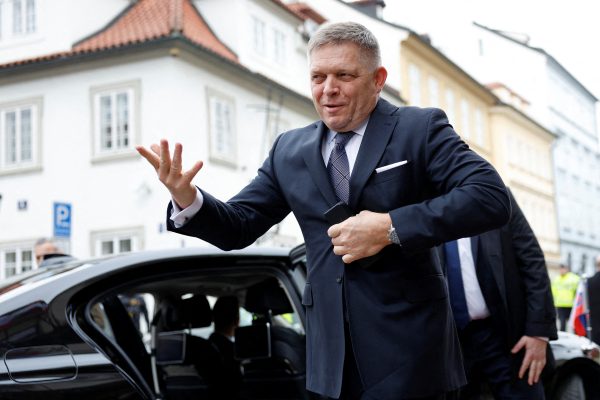As the US presidential election looms, the differences between the two candidates can seem stark. My advice to European allies is to concentrate on the similarities.
Whether under Donald Trump or Joe Biden, the next administration will have its hands full dealing with China. As even Donald Trump’s critics grudgingly concede, previous administrations neglected this, the defining geostrategic challenge of the 21st century. Now unprecedented efforts will be needed, on all fronts: economic, military, technological, and most of all, sharp power to blunt the threat, build resilience, and increase deterrence. United, the West still, just, has the heft to deal with the communist leadership in Beijing. Divided, it will surely perish — and we will live in a world run to suit Xi Jinping and his successors.
The big question of the next four years, therefore, is whether the United States and its Atlantic and Pacific allies are able to stitch together an effective coalition. That will require compromises on all fronts, among the allies, and in Washington DC.
The Trump administration’s approach to alliances certainly offers room for improvement. The rough-grained talk of “America First” inspires neither trust nor enthusiasm. The EU may be a rival in some senses, but it makes no sense to call it an enemy. NATO unfairly burdens the United States – but it is also the foundation of US global power. A hard-nosed, transactional system is harder to love and to justify to voters, than the familiar and inspirational idea of values- and rules-based world order. Many Europeans will therefore bemoan a Trump victory and cheer a Biden one.
That is their privilege. But they should be ready then to put their preferences aside speedily, and deal with the United States as it is, not as they would like it to be. Caricatures, whether flattering or corrosive, are not portraits. US policy under Donald Trump was not as bad as his critics claimed. A Biden administration will not bring back a golden age — not least because it never existed.
I have observed transatlantic relations since the 1970s, mostly with alarm mixed with gloom, both misplaced. President Nixon seemed to have permanently demolished US moral prestige with Vietnam and Watergate. President Carter similarly demolished the perception of US effectiveness. Many Europeans thought President Reagan was a dim-witted and irresponsible cowboy. President George HW Bush was widely seen as not up to the job, and to have mishandled the collapse of communism. The Clinton administration’s delayed intervention in the ex-Yugoslav wars aroused furious disappointment (as did personal presidential failings). President George W Bush launched the disastrous war on terror. President Obama forced his European allies to accept a “reset” with Russia and then a “pivot to Asia”. Yet fifty years later, we are still here. Nothing was as bad as it seemed.
From a US viewpoint, Europeans are, to put it politely, hard to please. They see (and bring) problems more often than solutions. They spend too little and ask too much. The blame for that does not rest in Washington DC. It rests with decision-makers and opinion-formers in Europe.
When the West’s main adversary was a declining Soviet Union or a Russia crippled by corruption and misrule, such weak, self-indulgent, and deluded behavior among allies was perhaps an affordable luxury. Not any more. China wants to be the most powerful country in the world by the middle of the century. It may well succeed.
The wisest course for any US ally worried about that bleak prospect is, therefore – to echo a previous president — to ask not what America can do for you but what you can do for America.
Europe’s Edge is CEPA’s online journal covering critical topics on the foreign policy docket across Europe and North America. All opinions are those of the author and do not necessarily represent the position or views of the institutions they represent or the Center for European Policy Analysis.





